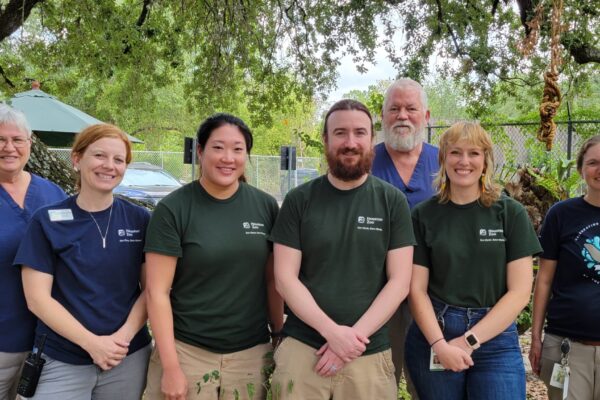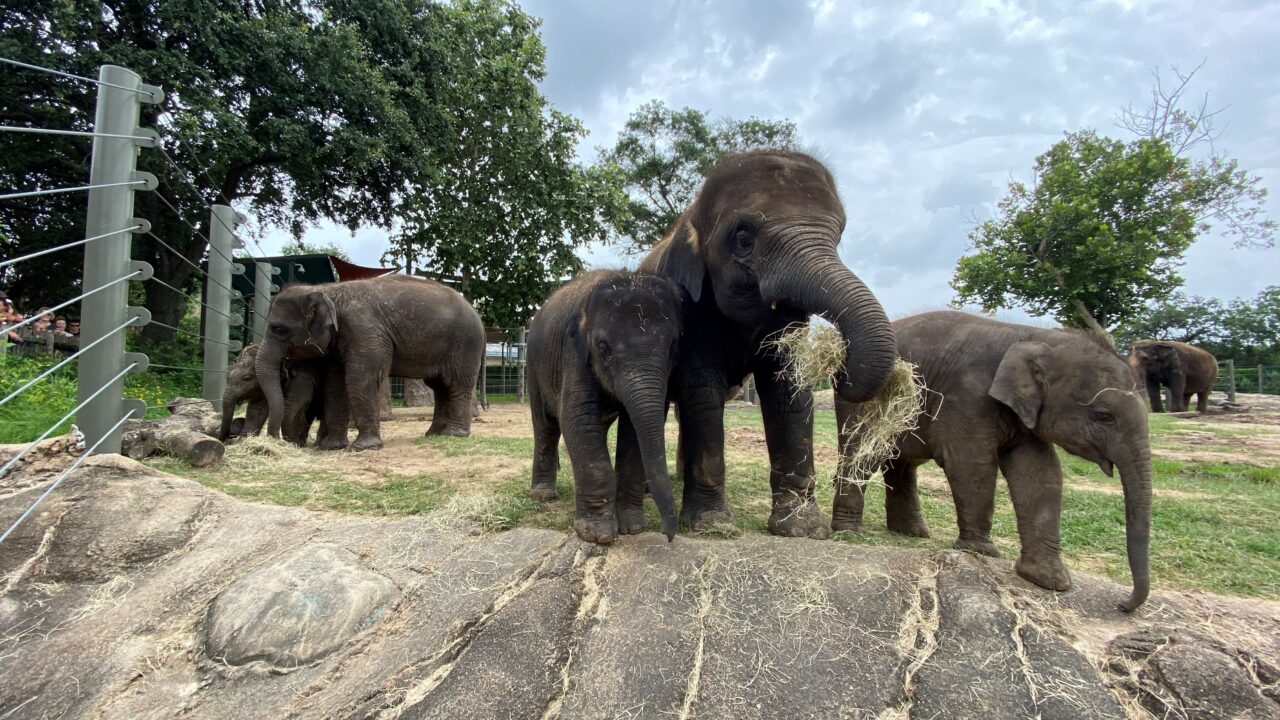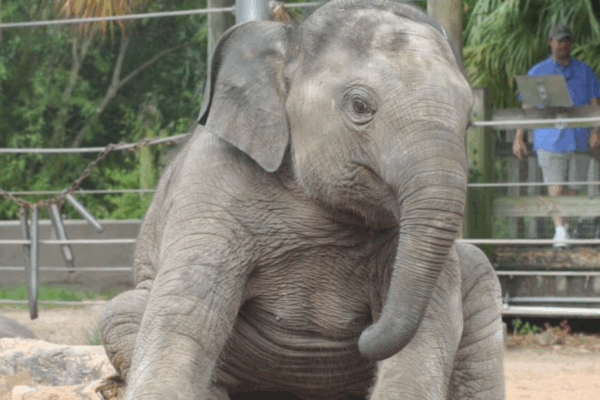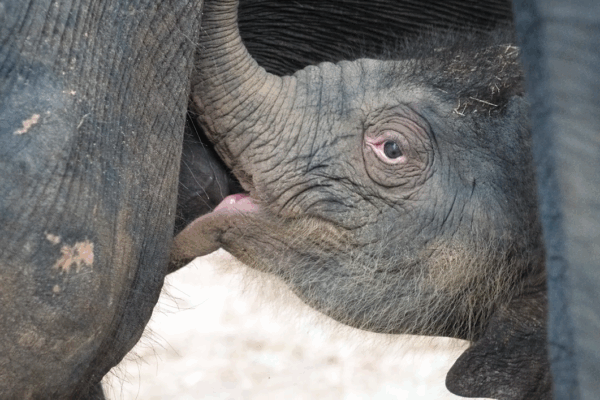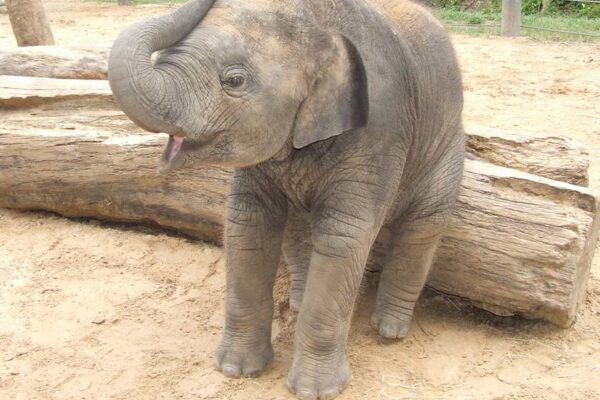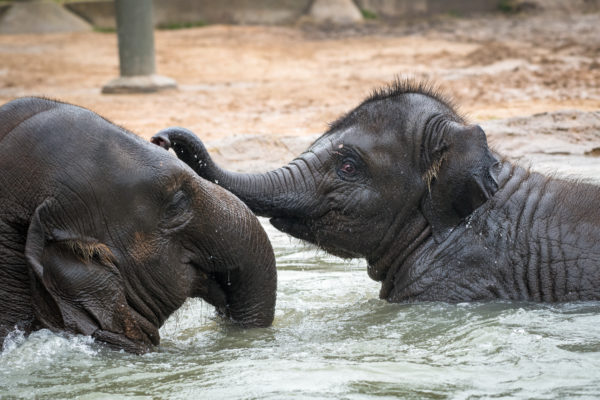Elephant Health Alliance: Protecting Pachyderms, Advancing Medicine
Saving Elephants: The Race to Fight EEHV
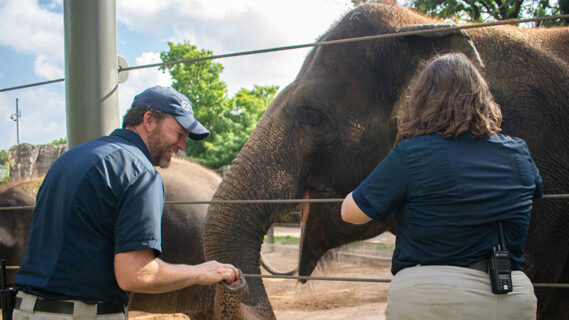 The Houston Zoo is a leader in global elephant endotheliotropic herpesvirus (EEHV) efforts. EEHV is a devastating viral disease in both Asian and African elephants worldwide. It occurs in elephants in the wild as well as those in human care such as in sanctuaries and zoos.
The Houston Zoo is a leader in global elephant endotheliotropic herpesvirus (EEHV) efforts. EEHV is a devastating viral disease in both Asian and African elephants worldwide. It occurs in elephants in the wild as well as those in human care such as in sanctuaries and zoos.
The protocol developed at Houston Zoo, to monitor, diagnose, and treat this disease is utilized by people all over the world as a valued reference and guide. It is humbling to hear directly from those working with elephants in range countries, that our Houston Zoo protocol provides important clinical guidelines for them. It is through our collective information sharing, research partnerships, global meeting participation, and local support that the mission of the Houston Zoo is achieved – to save animals in the wild.
Partnership with Baylor College of Medicine
The Houston Zoo is at the forefront of elephant care and working to find a cure for EEHV. Our Zoo plays an integral role in finding treatments and developing management strategies for the virus. The Zoo’s veterinarians and elephant care team established a research collaboration in 2009 with herpes virologist Dr. Paul Ling at Baylor College of Medicine’s (BCM) Department of Virology and Microbiology, which has led to significant advancements in the study of EEHV and the creation of the first-ever mRNA vaccine for EEHV 1A.
In the 15 years of this partnership, advances in diagnostics, therapeutics, and prevention have been discovered which have been used to save elephant lives in North America, Europe and range countries around the world and will be essential to the long–term survival of elephant populations squeezed into diminishing patches of native habitat.
Vaccine Development
Dr. Paul Ling at Baylor College of Medicine and the veterinary and elephant care teams at the Houston Zoo have been making steady progress toward the development of an EEHV vaccine. On Tuesday, June 18, the first dose was given to the Zoo’s 40-year-old Asian elephant, Tess. The vaccine’s effectiveness will be measured by evaluating antibody levels in her blood for specific side effects or adverse reactions such as injection site swelling or allergic reaction.
Following Tess’s vaccination, the next steps include vaccinating additional members of Houston Zoo’s herd and monitoring them similarly. This vaccine is anticipated to have a significant impact on the global Asian elephant population and lay the foundational work for a similar vaccine for African elephants as well.
Additional information about this virus, including current and ongoing research can be found at the North American EEHV Advisory Group’s webpage at EEHVinfo.org.
EEHV News at our Zoo / More ›
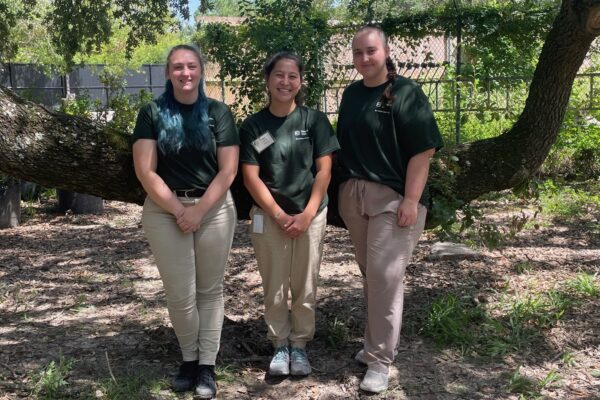
Say Hello to our Summer Conservation Interns
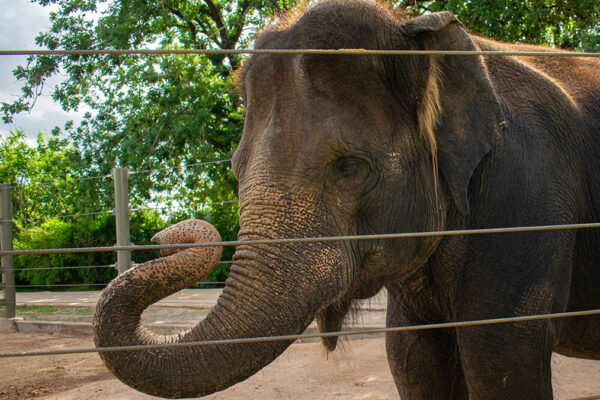
Houston Zoo Elephant Receives First Ever mRNA EEHV Vaccine
